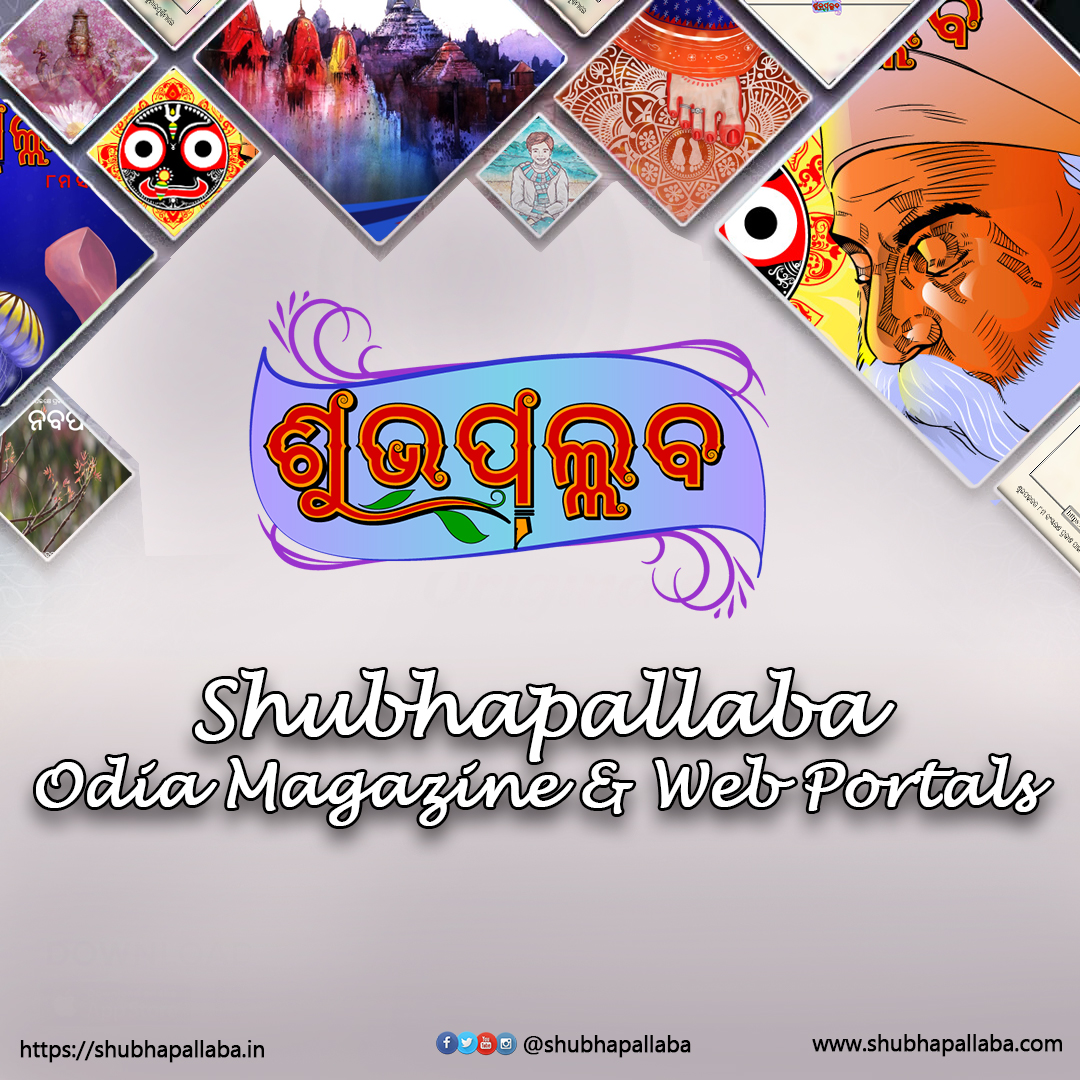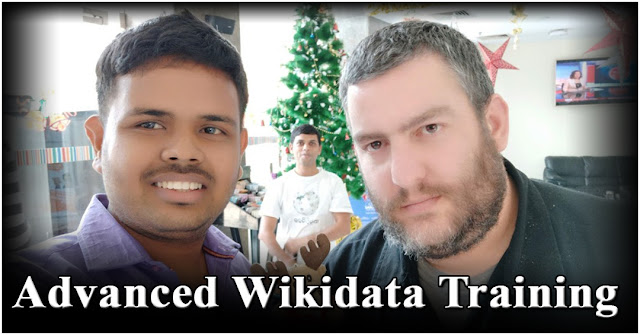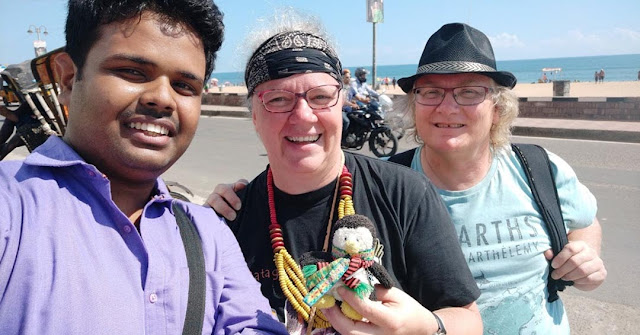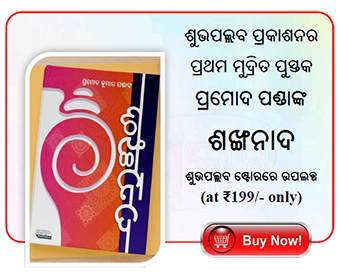Advanced Wikidata Training 2018 or AWT2018 was a residential training workshop for experienced Wikidata editors in India to be conducted on 15-16 December 2018 held at Grand Hometel, Malad West, Mumbai.
For this training, I was selected by the organizers and from Odia Wikimedia user group, I and Mrutyunjay Kar had selected for this. So, on the 14th December, I joined Kar Bhai at Biju Pattnaik International Airport, Bhubaneswar to Mumbai.
As usual, we were flying with IndiGo and for the first time in my travel history, the takeup delayed for 2 hours, so we reach late. Gyan Bhai was there to drop Kar Bhai, but by that time, I was inside, so I couldn't meet him.
We reached Mumbai late and by that time, Tito dada's aircraft on its runway, so we wait for him and we three headed toward the Hotel. It was evening and the traffic was huge. Though I have more traffic in Bangalore, so it was okay for me. But it took more than one hour to cross just 12 kilometers.
We reach around 6.45 pm and we had exactly 15 minutes to start the Introduction, meet and greet. So quickly, put my bag in my room after check-in and then joined with others. There I met some wikimedians from different communities for the 1st time.
There were Krishna Chaitanya Velaga, Tito Dutta and Tanveer Hasan, Loganathan whom I knew and met before. Balaji J, Bodhisattwa, Thamizhpparithi Maari, Ranjith Siji, and Arun Ganesh were there, whom I met for the 1st time.
There were Krishna Chaitanya Velaga, Tito Dutta and Tanveer Hasan, Loganathan whom I knew and met before. Balaji J, Bodhisattwa, Thamizhpparithi Maari, Ranjith Siji, and Arun Ganesh were there, whom I met for the 1st time.
Balaji did some fabulous work, so, Asaf gave him this T-Shirt.
After 7 to 9 discussions, where we came to know about each other. There we had a general conversation on Wikidata such as recent global developments in Wikidata. After that, we went for dinner.
The main and best discussion always happens on food tables. But this was not like that, we were discussing about some random problems with Wikidata and all were listening from this handsome guy with the beard. I would tell about him later.
And here is the dinner plate. Yes, I was hungry, so grabbed lots of things on my plate. All were busy with their conversations and I was busy with finishing all these things and listening to them.
After finishing the dinner plate, while I was looking for the dessert, Tanveer da was there, so while having these we talked about lots of things like why I left Bangalore, what I'm doing, how was my exam, about his life, about his next seminar, everything.
Day- 1
Our day 1 started with some good and delicious breakfast. But before that, I went to the gym with Balaji J, my roommate. He did some of his regular exercises and also taught me some basic things and introduced me to some machines and the type of exercises.
Then I went for breakfast. There Mrutyunjay Bhai joined me and as usual, we discussed about those deleted articles which I had created during the #100WikiWomenDays and later during my 1st WikiYear.
Then our meeting started where I found this "Meeting in progress for Tito". Everybody came to the meeting room by 9.30 am. Again after a formal introduction about the program of the day, Asaf started the discussion.
At the beginning of the meeting, Mahir joined us over a video call. Since he is staying abroad, so couldn't join us physically but joined us over calls sometimes.
I came to know about Wikipedia in 2013, then in 2014, I started editing and later knew about Wikisource. And last year came to know about Wikidata when Asaf did the WikYatra. Since I was staying in Bangalore, I couldn't join the training at Bhubaneswar and unfortunately, I didn't have any idea about the Mangalore training, so I couldn't join there too. So, this year, when I attended the TTT, Gopala Krishna had taught me some basics of Wikidata, but I could learn it properly.
But in July when I was at Bhubaneswar for OdiaWiki16, Mrutyunjay Bhai had taught me how to edit on Wikidata and then I love to edit there. During Wikidata Label-a-thon, I did around 4000 edits. But at this meeting, I came to know about a new project Lexeme.
The Lexeme is a new project on Wikidata to add a word on Wikidata which is like Wiktionary, but here it is open source. He taught us the contributing process to Lexeme and the future prospects of Lexeme.
But in July when I was at Bhubaneswar for OdiaWiki16, Mrutyunjay Bhai had taught me how to edit on Wikidata and then I love to edit there. During Wikidata Label-a-thon, I did around 4000 edits. But at this meeting, I came to know about a new project Lexeme.
The Lexeme is a new project on Wikidata to add a word on Wikidata which is like Wiktionary, but here it is open source. He taught us the contributing process to Lexeme and the future prospects of Lexeme.
The 1st section of Day 1 completed with the Lexeme part around 11.15 am. It's an interesting project. After the 1st section, we took a tea break of 15 minutes, but it became 30.
After the tea break, around 11.45 am we started Intermediate SPARQL. SPARQL is a query language like ORACLE used on Wikidata for the search process. For the pre-work, we had watched some videos on SPARQL, but here we revised that one with some hands-on examples.
The coding process for this language is not so hard, it's quite simple and easy. Though I never read ORACLE except for the insert, search and delete table queries, but this seems to be simple and would be easier with some more practice. The 1st part of SPARQL completed by 1.30 pm and we all went for lunch.
After the tea break, around 11.45 am we started Intermediate SPARQL. SPARQL is a query language like ORACLE used on Wikidata for the search process. For the pre-work, we had watched some videos on SPARQL, but here we revised that one with some hands-on examples.
The coding process for this language is not so hard, it's quite simple and easy. Though I never read ORACLE except for the insert, search and delete table queries, but this seems to be simple and would be easier with some more practice. The 1st part of SPARQL completed by 1.30 pm and we all went for lunch.
As I had mentioned before, the food table is the perfect place to discuss lots of internal things, own community discussions. So, we were discussing the issues we face with edits, local language contributions, etc.
After lunch, we continued the SPARQL part which was finished by 3.30 pm. And again took a tea-break for 30 minutes. From 4 to 6 pm, I learned about Tabernacle, Tools for Sheets, and SQID. And then the meeting was over for the day. But the meeting room was open, so others could practice things there.
Arun Ganesh
Wikidata simplified lots of things now and when I learned about this project, it helped me in lots of things, but when I came to know that the designer of the logo is an Indian, it is the next level.
After a day with lots of learning activities, we all discussed lots of things from Project Tiger to local language projects and many more things during that evening and then all had our dinner together.
Day- 2
On the morning of day 2, I and Balaji woke up late, because we were discussing the experiences with the project tiger and his works up to the late night.
The meeting for this day was planned to start by 9 am, so we hurried up to the breakfast table. At the breakfast table, I met Mrutyunjay Bhai.
All these choco flakes and fruits I brought with him because all these things are the secrets of this good looking and healthy lifestyle.
But, I realized, I'm different, so ordered this Masala Dosa. Now it feels like my type. Since we had to finish the meeting at 5 pm, we have to start as quickly as possible. Somehow we start sharp at 9.00 am.
Another big part of this training after SPARQL was Open Refining. Open Refining, a software that matches the data with existing items and adds the values if it is available and creates a new item for non-existing items.
From 9 to 11, we had learned to arrange the data on a sheet, which Asaf calls Data Massaging. Then with half an hour of tea break, we did the Mix'n'Match process on Open Refining and learned its automatic scrapers. Though this software doesn't support on Chromebook, I joined Mrutyunjay Bhai and saw the whole process.
Another big part of this training after SPARQL was Open Refining. Open Refining, a software that matches the data with existing items and adds the values if it is available and creates a new item for non-existing items.
From 9 to 11, we had learned to arrange the data on a sheet, which Asaf calls Data Massaging. Then with half an hour of tea break, we did the Mix'n'Match process on Open Refining and learned its automatic scrapers. Though this software doesn't support on Chromebook, I joined Mrutyunjay Bhai and saw the whole process.
This process was really time taking. We just tried with very few data, but the leaning process would help to update lots of data with less time. After finishing this session we went for lunch at 1.30. We were running out of time but happily took one hour for lunch.

Before Lunch, we took the group selfie. Someone for the hotel staff had taken this one from the 1st floor and we all were there holding a bag with Wikidata Logo.

Before Lunch, we took the group selfie. Someone for the hotel staff had taken this one from the 1st floor and we all were there holding a bag with Wikidata Logo.
At the Lunch table Tanveer da and Krishna had joined me, so here the cakes and sweets with Tanveer da's choice. It's not a choice, we tasted one dish each, so it looks much on plate.
After lunch, we discussed about the Wikidata project in India and it's future. And then Asaf had shown some good and interesting things about Wikidata; how people are using wikidata for their websites, how some games were designed with Wikidata. We had to finish by 5, but we took little more time.
After the meeting, I went to meet a friend there and when we reached for dinner, Asaf was about to leave, so I requested him to sign on that bag of mine. Then we took some photos with him.
Finally, Asaf left for his room and in the night he had his return flight. After that, we had our dinner together.
Return Time:
It was our return time from the event. I woke up early in the morning and then made some tea for me. I called Kar Bhai and decided to leave by 9.
By that time, the breakfast was ready, so we quickly had our breakfast and say bye to those, who had late flights.
Our take up time was at 10.30 am, so I and Mrutyunjay Bhai had left the hotel by 9 am. But before that, we took some photos there in front of the hotel.
There is a running water system falling from the top on the front glass, where I took this photo of Mrutyunjay Bhai. You could see that on the video below.

























































